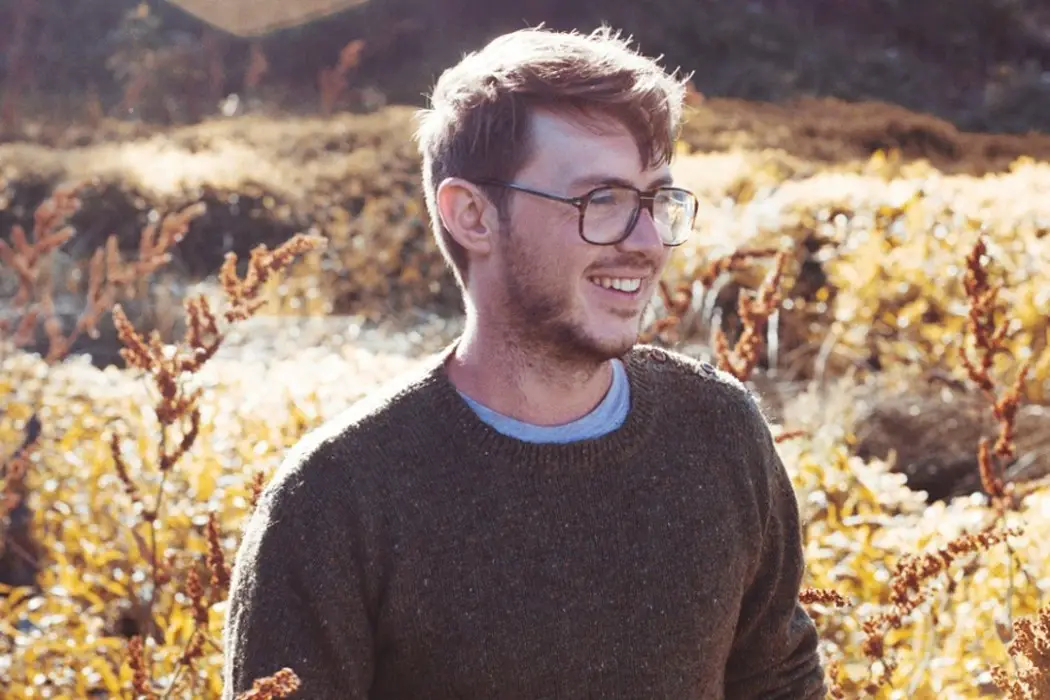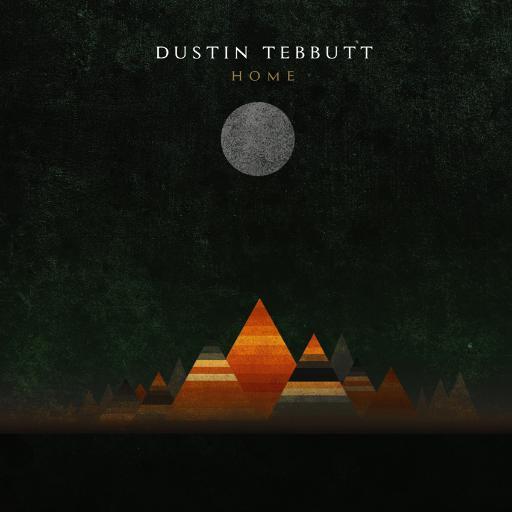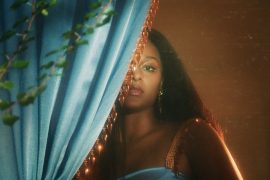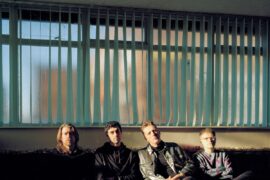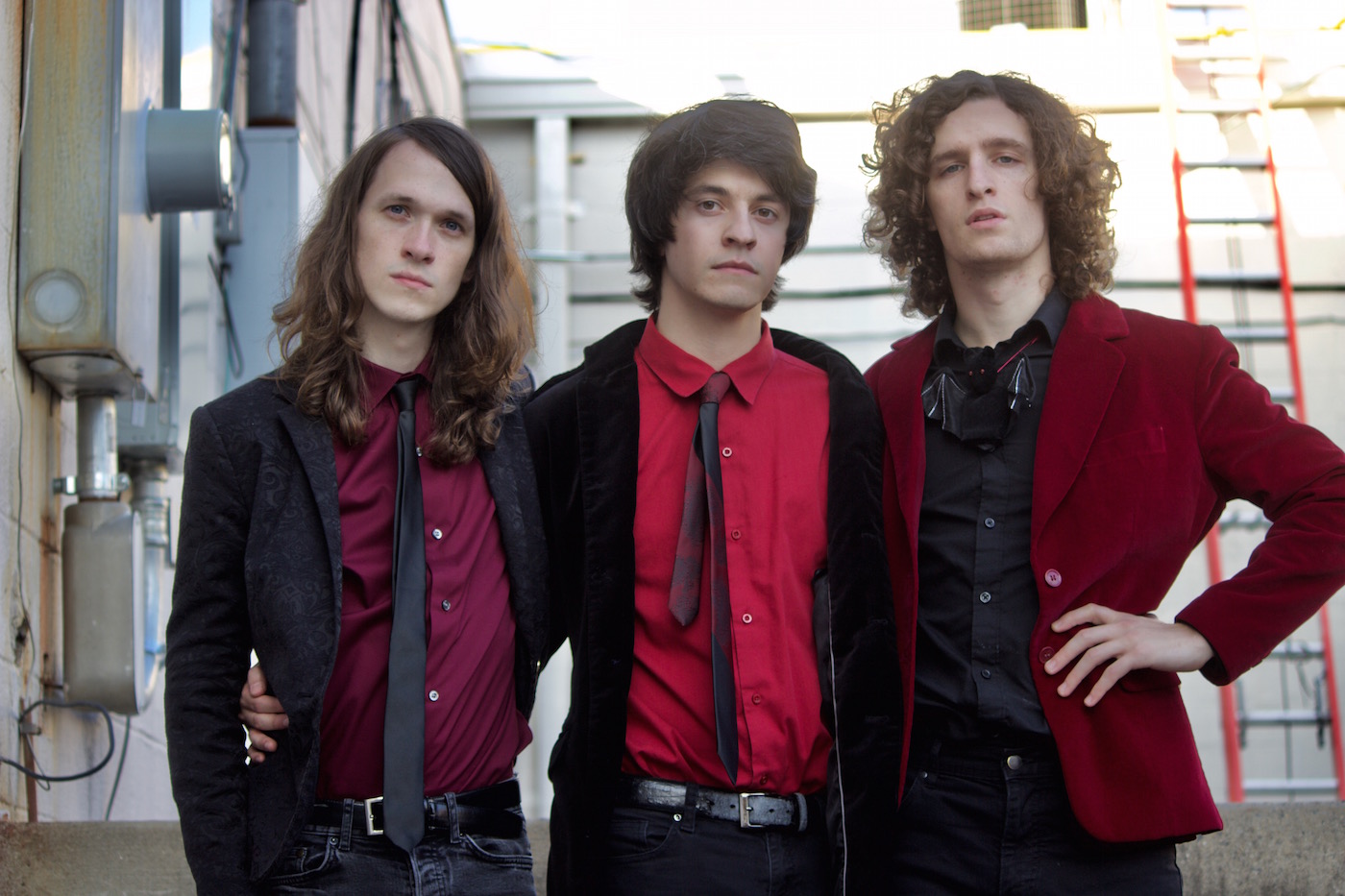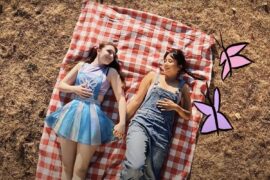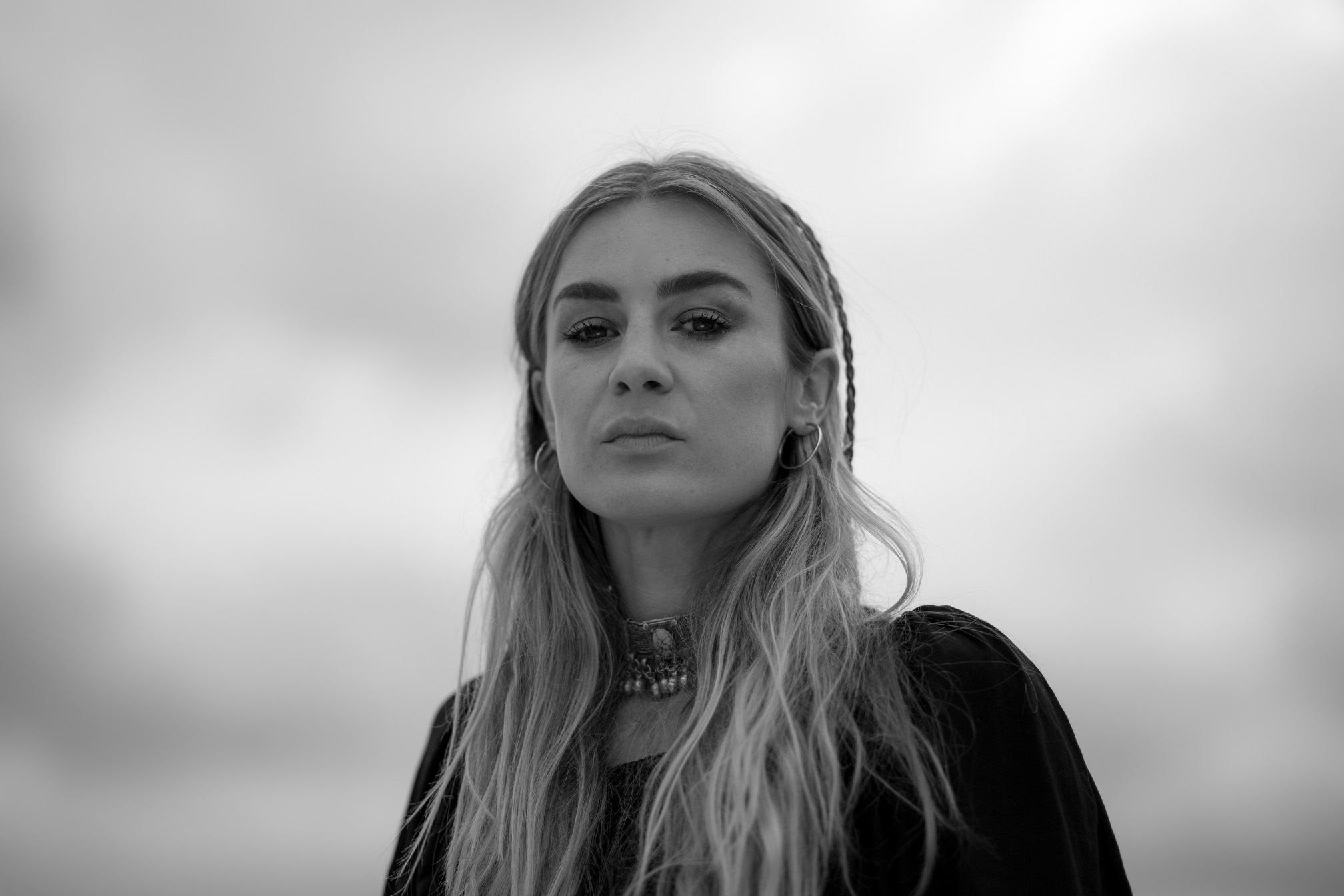Australia’s Dustin Tebbutt is a dream-weaver of song, a natural-born sonic poet with a proclivity toward crafting soothing acoustic soundscapes. His music is the type to elicit intense and profound contemplation in its audience, filling the spectrum of aural experience while maintaining a light and airy aura. Tebbutt’s new ‘mini-album’, Home (released 9/18 via Eleven Music and Tebbutt’s own Narvik Records), tests the utility of Tebbutt’s musicianship as he strives to develop and expand his musical identity as both a producer and an artist.
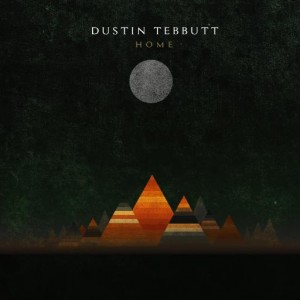
Breaking out of an established mold is one of the hardest challenges facing any artist: The pressure to remain the same, rather than to continuously reinvent oneself and one’s music is overwhelming, especially once an artist gains any sort of traction or following. Yet it is those artists who live outside even their own bounds – The Beatles, Radiohead, Philip Glass, Madonna, Prince, U2, David Bowie, Michael Jackson, Kanye West, Taylor Swift – who have remained at the helm of the cultural canon, leading their respective Zeitgeists. Tebbutt seems well aware of this popular preference for change over stasis, and though the name may evoke the cozy and familiar, Home is an exploration of uncharted territory that captures the moment this young artist stepped out of his skin for the first time.
While strictly speaking he has yet to release a ‘debut album’, Home marks Tebbutt’s sophomore effort and his first solo studio offering since he debuted in 2013 with The Breach EP and quickly followed up with Bones EP in mid-2014. Home is, in theory, similarly ethereal and folksy to Tebbutt’s previous work, but the mini-album’s songs are elevated by diverse, layered instrumentation and equally varied rhythmic patterns and drivers. Multidimensional, evocative and flowing, Home is Dustin Tebbutt’s most impressive work to date. Atwood Magazine spoke to Tebbutt for his take on the transformation from The Breach to Home.
Listen: “Home” – Dustin Tebbutt
[soundcloud url=”https://api.soundcloud.com/tracks/216989582″ params=”color=ff5500&auto_play=false&hide_related=false&show_comments=true&show_user=true&show_reposts=false” width=”100%” height=”166″ iframe=”true” /]
A CONVERSATION WITH DUSTIN TEBBUTT
Atwood Magazine: Hey Dustin, great to meet you! Where do I find you right now?
Dustin Tebbutt: Hey Mitch, nice to meet you man! I’m like an hour north of Sydney, at this place called Shelly Beach, just at my studio at the moment.
Fantastic - the cave where all the magic happens!
Dustin Tebbutt: [laughs] Yes, that’s right! It’s a beautiful, sunny day here today, so I don’t know how much magic’s happening – I’m just trying to stay inside, really, and not be tempted by the weather.
Do you find that you do your best work on the sunny days, or the gloomy ones?
Dustin Tebbutt: Hmm, I think – well, probably in the cold. In winter, I find it’s best because it’s kind of easier to justify being inside all the time, but I don’t have too much trouble in the summer. It’s actually really nice to be able to walk away in the afternoon and go down to the beach and go for a swim or something; it works nice.
Well, I've been following your progression for quite some time, and it's nice to have some new music from you - it's been a little while since you put out anything solo.
Dustin Tebbutt: Yes, it’s nice to have something else out there. I’ve been working pretty solidly since this whole thing began, and I don’t really think I knew what I was in for – like, I hadn’t really done any live shows before as a singer, and I had a bunch of stuff that I just had to get under my belt, really. I didn’t have that much of a plan when I put “The Breach” out, and a lot of stuff started happening quite quickly – which is really exciting – but I kind of feel like I’ve been playing catch-up, a little bit, since then, so… You know, I’ve been trying to write as much as I can, around doing all of that other stuff – just getting the live show to a point where I’m happy with it, building the team, and all that stuff. It’s been a mammoth couple of years, but now I feel like we’re just getting back on top, so it’s good to have new things out.
I didn’t have that much of a plan when I put “The Breach” out… I kind of feel like I’ve been playing catch-up since then.
Listen: “The Breach” – Dustin Tebbutt
[soundcloud url=”https://api.soundcloud.com/tracks/89573523″ params=”color=ff5500&auto_play=false&hide_related=false&show_comments=true&show_user=true&show_reposts=false” width=”100%” height=”166″ iframe=”true” /]
Do you feel like you're still playing catch-up?
Dustin Tebbutt: I think I probably will always feel like I’m playing catch-up. [laughs] Maybe that’s just part of my personality, but it’s that thing of… I just want to be one step ahead of everything. I don’t know, but just the nature of this whole game… It’s a very reactive thing. I feel like now, with the music that I’ve got ready to go, it’s been there for a little while and we’ve been able to set it up quite well, and I’ve started the next thing already, so I feel like I’m back into present time instead of rushed to catch up to the future.
You've been compared to a lot of different artists - Bon Iver, etc. - and called a lot of different things. From your perspective, how do you see yourself as an artist?
Dustin Tebbutt: I guess I see myself as first and foremost a producer. I think that’s my real strength, in building soundscapes and stuff out of worlds of sounds, and then layering songs into those. A lot of the references to Bon Iver and those kind of artists, some of it’s the vocal production stuff, but I guess a lot of it is just the time and spaces that the music happen in, and the palletes that a lot of those American folk artists use to tell their stories. I think I fit pretty alongside a lot of that stuff, and those references are definitely justified, but… I see myself as a visual musical artist, in a sense of like, I’m really just trying to create an immersive environment for people through music.
I’m really just trying to create an immersive environment for people through music
Did you find any struggles translating your production-based music to the live stage?
Dustin Tebbutt: Yeah, it’s been a real challenge. A lot of the things that make the music work in the recorded form are very subtle, like focusing on intricate parts and textured layering of acoustic instruments. As soon as you put those things onto a stage, you’re either going to have twenty people onstage, or you cut some of those things out. Also, just the energy factor – how people work in a room together, as opposed to in headphones. There’s quite a lot of inherent challenges just in bringing that subtlety to the stage where it doesn’t become one-dimensional. That one’s take a little bit of time to figure out and put together, but there’s so much cool technology out there today, with looping, computer-based stuff, drum pads – a whole bunch of stuff that you can really bring the recordings to stage, and use the live elements to highlight the things that you want to the focus on.
'Subtle' is exactly the word I would use to describe your music. It was those subtleties that listeners latched onto with 'The Breach'.
Dustin Tebbutt: Oh, yeah – well, I hope so. I don’t know, I kind of feel that it’s like, I think with “The Breach,” it was just the right combination of a lot of things that made that track work. Hopefully people come back to it and listen to it enough times to get beyond the main vocal part or the drum beat, and actually start discovering some of those other layers. I think some of my favorite artists – like one of them, Laura Veirs, I think she’s up in Portland now, from Canada originally… I’ve been listening to a couple of her albums for eight or ten years, and there are some tracks I put on, and I hear a new sound still – like, there’s a shaker there that I’ve never heard before, or a horn part or some vocal melody or something! Discovery over time is so rewarding, so if you can get people in there, then they can come back and then they can find something extra.
We hear a lot more instruments in 'Home' than in your previous works.
Dustin Tebbutt: Yeah! I just wanted to try something new. Like, most of the drums in that track are samples, and the percussion layers are all just random things from my shelves, and sound instruments that I went and sampled. Then there’s a bunch of real string sections and horn sections, and I hadn’t recorded any of that stuff before. I really wanted to see what it was like to work with those instruments, and it was really cool! It was a bit of a head spin – we were just about to start the session, and all of the guys were tuning up. We start tracking and I’m like, “There’s something wrong! Something is out of tune here.” It took us a while to figure it out, but after like, twenty minutes, we realized that – or, I realized that standard pitch for orchestral instruments is 441 Hz, and for pop it’s like 440 Hz, so – it was just this complete breakdown of communication where no one was pointing the finger and no one was cottoning on, because everyone was so certain that they were in tune. It was quite a funny thing, but like – [deep breath] we fixed it up and after that, it was fine.
Discovery over time is so rewarding, so if you can get people in there, then they can come back and then they can find something extra.
What have you learned, if anything, from this process of bringing in more 'stuff' to the mix?
Dustin Tebbutt: It’s been a really interesting one actually, because I feel like I’ve almost come full circle under the process of this mini-LP. I think I wanted to add a lot of extra sounds throughout this thing. “Home and “Winter Sun” and a bunch of the other tracks have a lot of layers in there, almost to the point where it’s probably a little bit too much? I think I’ve kind of got that out of my system now, and the stuff that I’m writing now, I’m feeling like I don’t want to have as many sounds. I’m trying to focus on three or four sounds at a time that are really just taking the focus of the track, leaving that space, and making sure that those sounds are really good. Before, I was trying to compensate, maybe, for not being confident in the individual sounds I was using, or wanting to make the songs feel really full to compensate for arrangement stuff, whatever, whereas now I feel like, “Okay, I know I can record all these sounds and they’re going to sound cool; now how do I go about making sure that I’m putting them together in the right way, and being resourceful instead of just chucking everything in the mix?” I think that was the biggest learning experience for me: Starting to look at the process of “less is more.”
So you're already onto the next one, huh?
Dustin Tebbutt: Yeah – yes, definitely. We have these solid lines with creative stuff; you know? I think artists’ careers are so defined by albums, or with visual artists, exhibitions – these things that break everything up into these neat bodies of work, but I don’t really find that life happens like that, for me. There’s songs that I’m working on now that are about things two years ago, and some of them are about things that haven’t happened yet! It seems really unnatural for me to draw these distinct lines in the sand of where one thing stops and the next one starts. It kind of puts all this pressure on you as well, to be like, “Well, this thing has to be it,” whereas it’s like, well it’s just part of a bigger growth as an artist.
Is that one of the reasons why you still have yet to do a full album?
Dustin Tebbutt: Partly that, I guess. I think part of it, as well, is just from releasing a couple of EPs and seeing how different tracks get played and how the whole body of work gets received, and what actually ends up making connections with people and when that happens. I feel like with the whole streaming thing and with digital music as a whole, people tend to be a bit more selective about picking parts of catalogs instead of just buying a whole thing and listening to a whole thing. So in that sense, I feel like it’s probably a good idea to be releasing more things, more consistently, as opposed to what I’ve done this time, as being absent for eighteen months or two years pretty much, and then putting out this big body of work. In the future, I’ll probably move away from that strategy to where I just have a bit more of a constant flow of things, and it’s a bit more of a conversation, and people are included in the growth and development of each track as it happens, almost.
In a way, that goes right back to what we were talking about earlier with the 'less is more' comment.
Dustin Tebbutt: Exactly – I guess it’s just changing the way you look at time, too. There’s such an accepted way of releasing music because it’s been done for so many years, but it doesn’t mean that’s the best way for anyone really – even for the artist, so we’ll see how it goes.
Listen: “Silk (feat. Thelma Plum)” – Dustin Tebbutt
[soundcloud url=”https://api.soundcloud.com/tracks/221212109″ params=”color=ff5500&auto_play=false&hide_related=false&show_comments=true&show_user=true&show_reposts=false” width=”100%” height=”166″ iframe=”true” /]
For you, what was the hardest part about these most recent recordings?
Dustin Tebbutt: I think the biggest challenge was feeling like I had a fresh start. After The Breach and Bones, those things – those EPs – happened in private, in a way. Before anything was really out there, they were pretty much done. I didn’t have any expectations, or agenda, or any audience, or really anything to guide my creative process, or bounce off, or anything – they were kind of made in isolation. After The Breach happened and I started writing again, I felt some level of expectation – whether it was real or not – and also, I felt like I’d made a statement, and following up with Bones, it was a very similar statement and I’d started to already belong to a type of artist, and “the” kind of artist… I kind of felt a little bit, not trapped, but I was aware of that, and I found it quite hard to write outside of that, and push boundaries, and just write freely. I would get to a point with the track where I’d be like, “Oh, but that’s not going to fit with what I’ve been doing.” Because of what they think I am – so you’ve got this other mind game going of the audience. I tried to ignore that as much as I could, but it was there for sure.
If listeners had to really focus on one track on this new record, which one would you want it to be?
Dustin Tebbutt: Musically? I’m really happy with the last track, “Winter Sun.” There’s this little, extended outro part of it that’s just instrumental, and it’s one of the favorite pieces of music that I’ve created. I don’t know if it’s particularly that great or whatever, but I just really enjoyed putting it together, and I really enjoy listening to it now. It’s got this harp in there, and string layers that just evolved out of the studio – they weren’t as planned. It was a very reactive track, and all the layers tended to work, so I’m really proud of that piece.
Is that your favorite one on the record?
Dustin Tebbutt: I think so, yeah.
Cool, well I'm super excited to have the whole thing out, and it's great to have you back in action!
Dustin Tebbutt: Yeah, well there’ll be plenty of more stuff on the way. I’m sorry about the little wait!
Home
A mini-album by Dustin Tebbutt
Learn more about Dustin Tebbutt online at www.dustintebbutt.com
You can follow Dustin Tebbutt on Facebook, Twitter, and Instagram

